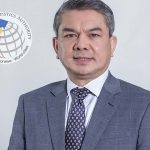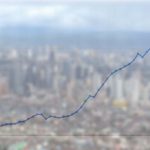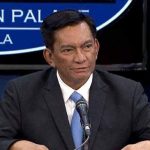MALULUSUTAN ng Philippine economy ang inaasahang global slowdown ngayong 2019 dahil sa mga nakatakdang public investments para sa taon, ayon sa Department of Finance (DOF).
Sinabi ni Finance Secretary Carlos Dominguez III na inaasahang mas bibilis ang paglago ng ekonomiya ng bansa ngayong ta-on sa kabila ng global headwinds.
“The Philippines is poised to buck the trend of a global growth slowdown in 2019, with its economy keeping its ascending tra-jectory onwards on the strength of the massive public investments programmed this year for infrastructure and human capital devel-opment along with prospects for higher consumer and business spending resulting from the government’s headway in taming infla-tion and improving the ease of business,” anang kalihim.
Plano ng administrasyong Duterte na gumastos ng mahigit sa P8 trillion sa ‘Build, Build, Build’ program nito hanggang 2022.
Noong nakaraang taon, ang economic growth ng bansa ay naitala sa 6.2 percent, mas mabagal sa 6.7 precent noong 2017.
Ang pahayag ay ginawa ng DOF, ilang araw makaraang sabihin ng think tank Fitch Solutions Macro Research na mahihirapang makabawi ang local economy ngayong taon.
Kabilang sa headwinds na tinukoy ng Fitch Solutions ay ang muling pag-igting ng global trade tensions, gayundin ang paglambot ng business conditions.
“We at Fitch Solutions reiterate our view that the Philippine economy will struggle to reverse its weakening growth momentum over the coming quarters owing to tighter monetary conditions, the potential for a re-escalation of global trade tensions, as well as a deteriorating business environment,” anang Fitch Solutions.
Sa kabila nito, sinabi ng Finance chief na hindi magbabago ang 7.0- to 8.0-percent target range ng bansa para sa kasalukuyang taon.
“President Duterte’s economic team is still maintaining 7 percent as a fighting target for GDP (gross domestic product) growth this year and thereafter, despite independent forecasts of sluggish global economic expansion arising from downside risks such as the trade spat between the United States and China and rising US interest rates,” ani Dominguez.









Comments are closed.